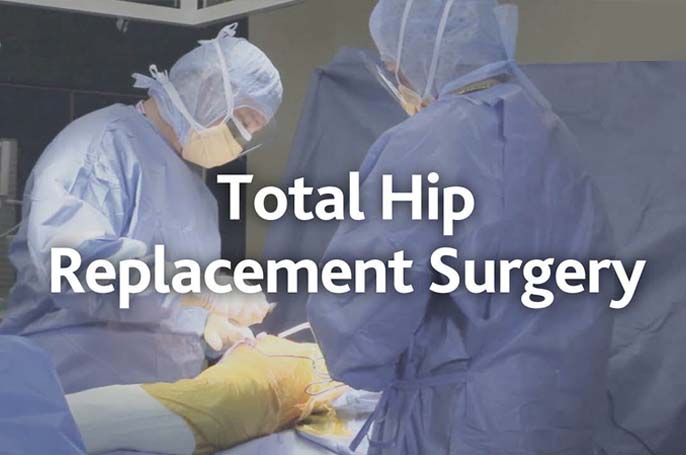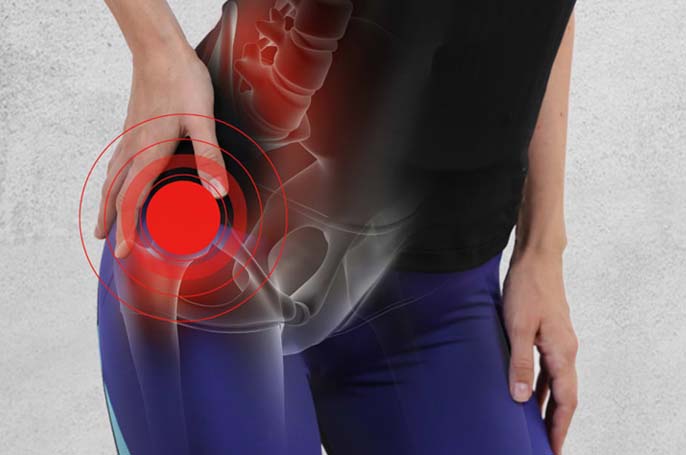Hip Replacement

Hip is the part of the human body where the thigh bone joins with the hip bone. In this joint, the ball like the top part of the thigh bone swivels in the socket like acetabulum which is situated in the pelvis.
Hip Replacement Surgery is a medical technique of helping patients suffering from chronic hip injuries or degenerative diseases that lead to joint damage. The surgery is carried out by making an incision over the affected area, to expose the damaged joint which is then removed and replaced by an artificially created graft. The material used for making graft is of very high quality and is designed keeping in mind the specific needs of the patient. Hip Replacement Surgery can help the patient to restore normal movement of the hip joint and get rid of the pain and discomfort.
In most of the people, a total hip replacement is triggered by arthritis. A hip replacement is recommended when it becomes impossible for the person to bear the joint pain, and perform even the simple tasks of daily living due to intervention caused by the damaged hip.
Who need a Hip Replacement?
If your answer is yes to most or all the questions below, you probably are a candidate for Hip replacement surgery.
- Does severe hip pain limit your activities? (walking, climbing stairs, getting in and out of chair)
- Is your Hip stiff, which makes it difficult to move or your hip, is fixed in one position?
- Pain associated with limb shortening and limps while walking
Procedure:
Hip joint is exposed using a incision on the back of hip, over the buttock. Joint is exposed after separating the muscle and cutting through the capsule. The worn and damaged surface of bone and cartilage from upper end of femur (thigh bone) and pelvis are removed and shaped to accept the prosthetic implants. These surfaces are replaced with metal and plastic / Ceramic implants which closely mimic natural hip motion and function.
You need to follow the instructions of orthopedics for recovering faster.
- Taking care of your wound by following up with the doctor and taking proper medications on time.
- Diet plays a very important role in this, the doctor advised taking lots of iron supplements as it is important for healing the tissues.
- It is very essential to go for a walk which will help to increase mobility.
- Physiotherapists play a very important role in this they help you to recover faster post-surgery.


